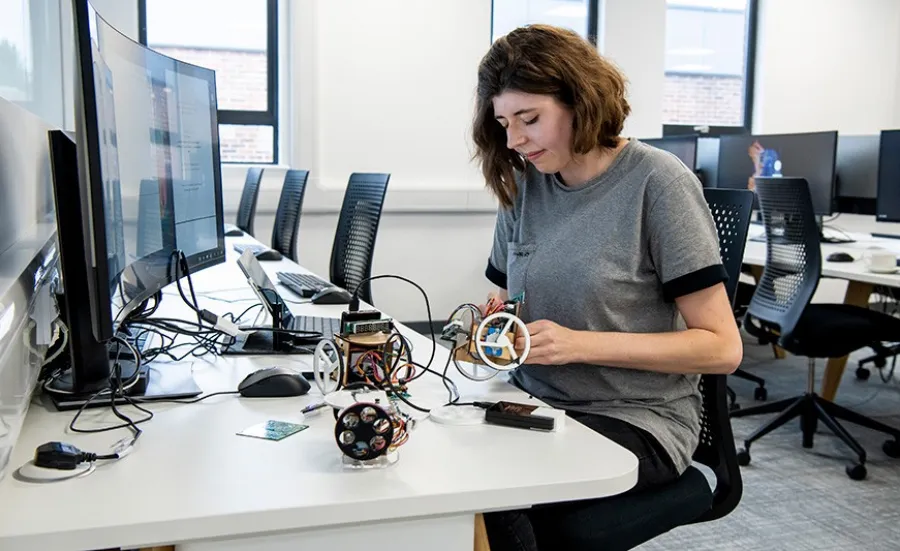Current research degree projects

Explore our current postgraduate research degree and PhD opportunities.

Explore our current postgraduate research degree and PhD opportunities.

The extreme temperature environment around a hypersonic vehicle can presently not be simulated accurately. This project will close this gap by coupling a non-equilibrium, real-gas shock-capturing fluid solver in our AMROC/VTF framework to a general-purpose solver for solid heat conduction and surface radiation. Verification and validation cases will be studied.
Traditional approaches to metallic materials innovation against creep-fatigue rely on extensive physical testing which is currently conducted in a sequential, low-throughput manner. This project aims to develop a high-throughput creep-fatigue qualification protocol by integrating full-field imaging techniques with meso- and small-scale testing, to faithfully capture design-relevant properties for fusion energy.
This project is in the emerging field of design of advanced materials. It aims to facilitate applications of lattice metamaterials through development of computational material characterization tools. These tools will enable the formulation of design strategies, guidelines, and methods as a long-term objective.
Respiratory diseases develop progressively. However, current monitoring methods are unsuitable for long-term continuous monitoring. Near-infrared spectroscopy (NIRS) uses light to interrogate the optical properties of tissue. This project aims to develop a wearable system for long-term respiration monitoring using NIRS powered by artificial intelligence (AI) to aid in analysis.
This project will explore the combination of Stacked Intelligent Metasurfaces (SIM) and Orthogonal Time Frequency Space (OTFS) in the next-generation Space-Air-Ground Integrated Network (SAGIN).
Imagine a world where there is Internet access and radar-assisted living and quantum security, wherever there is light. The objective of this project is to implement Integrated Sensing and Communication (ISAC) in visible light bands.
This PhD project will develop advanced ultrasonic array techniques for hydrogen leak detection, localisation and characterisation in complex, noisy environments. Combining mathematical modelling and physics-informed signal processing with AI-driven methods (including PINNs), the research aims to enhance robust, cost-effective leak detection with industrial applications on complex sites.
This project will develop an integrated membrane electrochemical system (MES) for efficient lithium separation and CO? capture. By combining advanced membrane materials development with electrochemical process design and optimisation, it aims to deliver a transformative solution for sustainable resource recovery and carbon management.
This project will use device simulations combined with transient electronic and optoelectronic characterisation techniques to unambiguously identify the resistive switching mechanisms underlying memristors based on a wide variety of materials systems including perovskites and titanium-based compounds.
Traditional circuit theory, grounded in transfer functions and state-space models, fall short at addressing the complexities of modern, bidirectional power networks. This project investigates data-driven control methodologies tailored for active networks, with a particular focus on coordinated control strategies, distributed controllers, and their practical implementation on power converter devices.